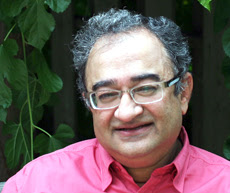Saturday, May 14, 2005 Page A17
Muslim law cleric doubts sharia
suitable for Canadian society
By ESTANISLAO OZIEWICZ
Globe and Mail
http://tinyurl.com/794pn
The grand mufti of Marseilles is adding his voice to those opposed to applying religious laws in family matters, a practice Ontario is proposing to extend to Muslims in the province.
Soheib Bencheikh, an Algerian Muslim cleric who is also the highest official of religious law for Marseilles, said yesterday that sharia, or traditional Islamic law, incorporates both spiritual and judicial concepts developed exclusively by men centuries ago and that are subject to interpretation.
He said they may not apply to contemporary Canadian society.
"Is it possible to apply the sharia in societies that are governed by constitutions that stand for gender equality?" asked Mr. Bencheikh, who supports France's prohibition of religious symbols in schools. "It's illogical to apply today the precepts conceived [in tribal, patriarchal societies] to safeguard the interests of yesterday."
Ontario's proposal to create an Islamic arbitration system -- similar to those that exist for Jews and Ismailis -- to settle family and inheritance disputes has been attacked by some Canadian Muslim women's groups, which argue that women would be coerced and lose rights afforded them under Canadian law.
Mr. Bencheikh was speaking by telephone from Montreal, where he was attending a conference organized by Rights & Democracy, an organization created by Parliament in 1988 to promote human rights and democracy around the world. The conference is exploring religious fundamentalism and its growing threat to human rights.
Rights & Democracy has denounced Ontario's move to faith-based arbitration of family matters. President Jean-Louis Roy recently wrote to Attorney-General Michael Bryant, saying that such arbitration has the effect of privatizing family law by creating a parallel system that allows the religious, cultural and political elites that organize the dispute-settlement procedures to decide on the applicable law.
With the support of the Canadian Council of Muslim Women and the National Association of Women and the Law, Mr. Roy argues that many religions can be interpreted as incorporating a gender bias to the disadvantage of women's equality rights.
"[This] could very realistically result in discrimination against women," he said.
Ziba Mir-Hosseini, of the international coalition Women Living under Muslim Law, said there are two current trends in interpreting Islamic family law: one is authoritarian, retrograde, patriarchal and detrimental to women's rights, and the other is progressive and acknowledges women's rights.
She says that if Ontario were to approve the application of Islamic law through arbitration panels, it could be seen outside Canada as favouring the authoritarian trend.
Mr. Bencheikh said that applying sharia in provincial arbitration panels also runs the risk of putting Islam in a bad light and creating divisions among people rather than bringing them together.
Rights & Democracy says that while it recognizes the right to religious freedom includes the right to participate in religious processes to resolve family disputes, Canada must not allow this to override its obligation to eliminate violence and discrimination against women.
Subscribe to:
Post Comments (Atom)

1 comment:
THANK YOU!
Finally changed you're name eh? I am glad that instead of fooling people who have shown your true colours. FYI fatah, i talked to my muslim friends at UT, they think you're a joke and none of them support your cause...
Post a Comment